Siegfried Marcus (1833-1898), a remarkable engineer and manufacturer, lived most of his life and died in Vienna, leaving his most important legacy — an experimental automobile resembling today's modern car and the oldest extant automobile known worldwide. Marcus' second car, built circa 1875 (a more specific date still being investigated by historians), is believed to be the first vehicle powered by a four-cycle engine and the first to use gasoline as a fuel, featuring the first carburetor for a gasoline engine and the first magneto ignition.
Road Transportation

ViennaCountry: AustriaWebsite: http://www.asme.org/about-asme/history/landmarks/topics-m-z/road-and-off-road-transportation/-203-siegfried-marcus-car-%28ca--1875%29Creator: Marcus, Siegfried
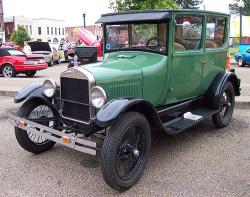
DearbornState: MICountry: USAWebsite: https://www.asme.org/about-asme/who-we-are/engineering-history/landmarks/233-model-tCreator: Ford Motor Company, Wills, Childe
When Ford Motor Company introduced its new Model T on October 1, 1908, even an inveterate optimist like Henry Ford (1863-1947) could not predict the vast changes that his rather homely new vehicle would produce. What flowed from this series of bold innovations was more than an endless stream of Model Ts — it was the very foundation of the twentieth century itself. The assembly line became the century's characteristic production mode, eventually applied to everything from phonographs to hamburgers.

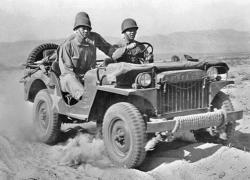
Although not the first four-wheel-drive vehicle or the first designed for rough, multipurpose field use, the Jeep MB was built as an unusual combination of these and other features of modern vehicle design in the World War II era.
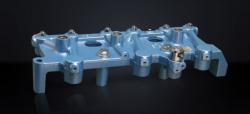

The first practical demonstration of this tractor took place in a peat field on Roberts Island on November 24, 1904, and was patented and in production by December of 1907. The existing machine represents the earliest gasoline-powered track-type tractors that were to help revolutionize agriculture, logging, construction, road building, and transportation around the world. Its design and development is credited to Benjamin Holt (1849-1920), president of the Holt Manufacturing Company of Stockton.
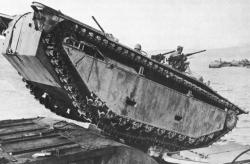
Innovations
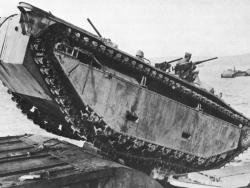
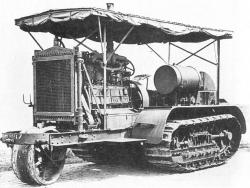
The first practical demonstration of this tractor took place in a peat field on Roberts Island on November 24, 1904, and was patented and in production by December of 1907. The existing machine represents the earliest gasoline-powered track-type tractors that were to help revolutionize…
Read More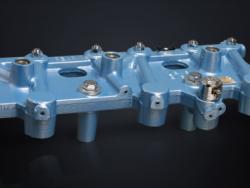

Although not the first four-wheel-drive vehicle or the first designed for rough, multipurpose field use, the Jeep MB was built as an unusual combination of these and other features of modern vehicle design in the World War II era.
The prototype four-cylinder "Quad" was designed in 1940-…
Read More
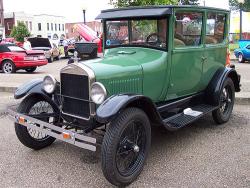
When Ford Motor Company introduced its new Model T on October 1, 1908, even an inveterate optimist like Henry Ford (1863-1947) could not predict the vast changes that his rather homely new vehicle would produce. What flowed from this series of bold innovations was more than an endless stream of…
Read More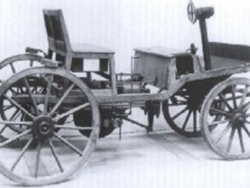
Siegfried Marcus (1833-1898), a remarkable engineer and manufacturer, lived most of his life and died in Vienna, leaving his most important legacy — an experimental automobile resembling today's modern car and the oldest extant automobile known worldwide. Marcus' second car, built circa 1875 (a…
Read More

